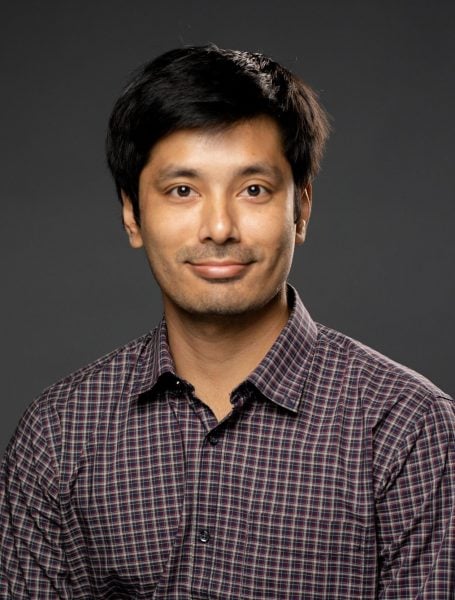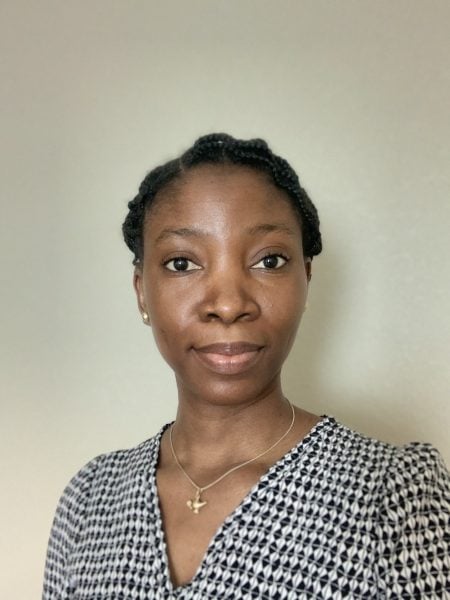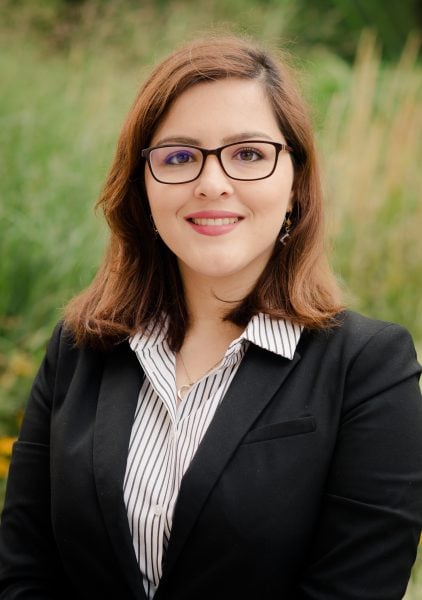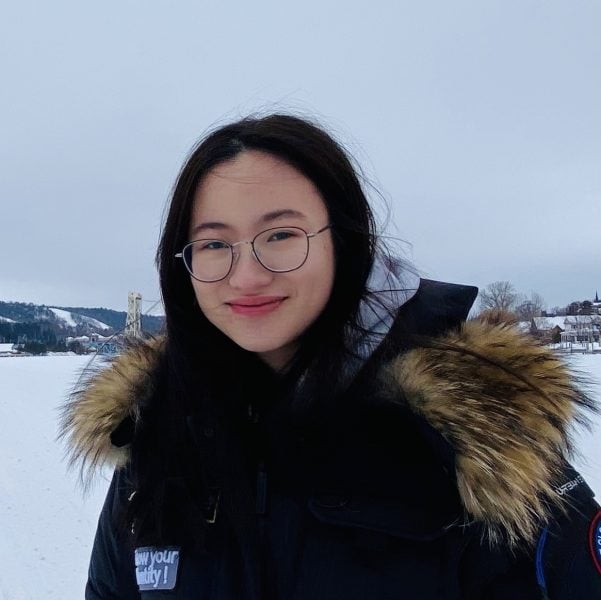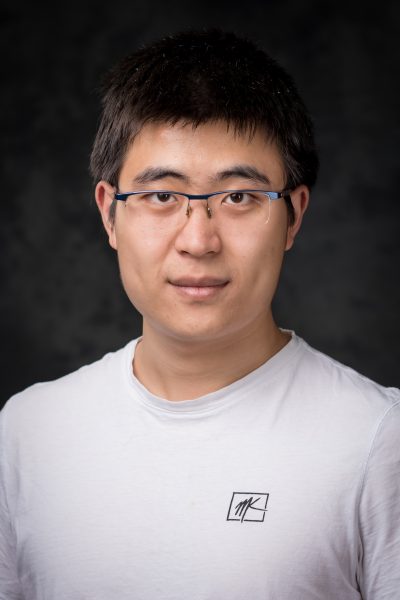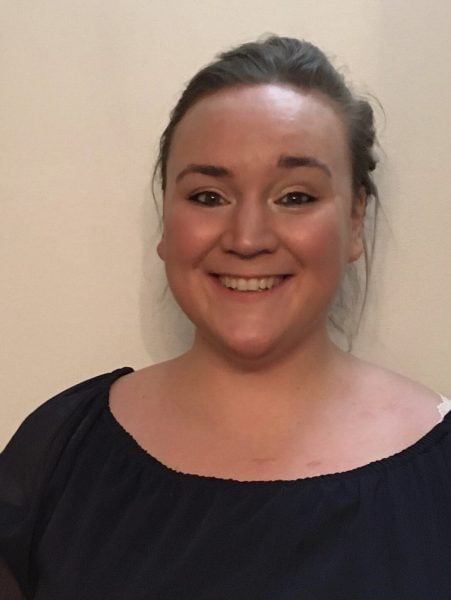I completed my B.S. (2015) and M.S. (2020) in Chemical Engineering at Michigan Technological University. As a graduate student I am completing my studies with Professor Kawatra in the Department of Chemical Engineering. My work has focused on the efficient and sustainable processing of raw and waste materials in mineral processing, which includes iron ore processing, carbon dioxide capture and utilization, and rare earth extraction from waste materials such as red mud. This work has led to several publications, including a highly cited review on the flotation of iron ores. My dissertation will build upon my master’s thesis and focus on understanding the intricacies of pelletizing iron ore to minimize waste and environmental concerns such as fine dusts.
I am grateful to Professor Kawatra and my committee for the support and guidance he has provided over my years at Michigan Tech, to my fellow graduate students under Professor Kawatra for being there to bounce ideas off of and to share insightful discussions with, and to my high school chemistry teacher who suggested Michigan Technological University to me in the first place.
Interesting stories about and for our students.
I started working on my PhD in Fall 2017 at the Mechanical Engineering – Engineering Mechanics department with Dr. Susanta Ghosh. Previous to this, I obtained my masters’ degree from the Indian Institute of Technology (IIT), Bombay, India, in Aerospace Engineering and a Bachelors’ degree from Malaviya National Institute of Technology (MNIT), Jaipur, India. During my masters’, I was awarded the DAAD fellowship to work on my thesis at Leibniz University Hannover, Germany.
At Michigan Tech, I worked on several different projects. I began working on Micro-architectured glass materials and developed a novel analytical model to simulate the complex behavior of these materials. In another project, I developed an atomistic-continuum model to simulate large area mono-layers of Transition Metal Dichalcogenides (TMDs). This model can be used to obtain the deformation of mono-layer TMDs under various loading conditions and can provide a way to alter their optical, electrical, and mechanical properties in a controlled manner. In collaboration with Shashank Pathrudkar, we developed a novel Machine learning model to predict the high-dimensional deformation of multi-walled carbon nanotubes. This model is as accurate as of the atomistic-continuum model while being several orders of magnitude faster. I am currently working on extending these models for several other applications.
I would like to thank my advisor, Dr. Susanta Ghosh, for his support and guidance at each step. I would also like to thank the Graduate Dean Awards Advisory Panel and the dean for awarding me the finishing fellowship. This fellowship will help in completing all the work on time, including writing and defending my dissertation.
I obtained my BSc degree from the University of Peradeniya, Sri Lanka, and I moved to Houghton in 2015 with my husband. I am fortunate to be enrolled in the Chemistry Ph.D. program at Michigan Tech in 2017 spring, and I joined Dr. Fang’s research group. As a student researcher, I learned the skills needed in the laboratory and improved skills such as critical thinking, problem-solving, mentoring junior researchers, communication, and leadership. It is a privilege to collaborate with colleagues in our laboratory on many research projects with different disciplines.
One of my research projects is the development of non-chromatographic method for synthetic oligodeoxynucleotide (ODN) purification, and another is the automation of polyethylene glycol (PEG) synthesis. Synthetic oligonucleotides have applications in various fields. Even though ODN synthesis has improved significantly in the past decades, the purification of synthetic ODN still has many challenges. The most widely used HPLC purification is expensive and not suitable for large-scale and high throughput purification, and purification of long ODNs. We developed a non-chromatographic ODN purification method suitable for large-scale, high throughput, and long ODN purification. This method does not involve expensive reagents, solvents, or instrumentation, and it can significantly reduce the cost of synthetic ODN purification. Polyethylene glycols (PEGs) have found applications in many fields, including the pharmaceutical industry. Due to the high labor demand of current synthesis and purification methods, it is expensive to obtain monodispersed PEGs. The method that we developed does not require purification of intermediates, and more importantly the entire synthesis is automated. As a result, we can obtain pure PEGs for a significantly lower cost.
I would like to convey my gratitude to The Graduate Dean Awards Advisory Panel for providing the finishing fellowship award at a critical moment in my graduate study. The fellowship is important for me to focus on writing and defending my dissertation, and to graduate timely. I would also like to thank my advisor Dr. Shiyue Fang, and Dr. Marina Tansova for their indispensable guidance throughout the program.
I started my graduate studies as a PhD student in the Computer Science department at Michigan Tech in Fall 2016. On the way to my PhD, I obtained a Master’s degree in Computer Science in Fall 2018. I have a Bachelor’s degree in Computer Science and Engineering from University of Dhaka, Bangladesh.
My research focuses on designing intelligent interfaces for users who have some form of speech or motor impairment such as ALS, Cerebral Palsy, or Parkinson’s. Such users have trouble speaking and may use an Augmentative and Alternative Communication (AAC) device to communicate face-to-face or in writing. Their input rate is often quite slow due to their motor abilities. My research looks into improving AAC devices to accelerate AAC user input via different methods. These include: training and deploying state-of-the-art statistical and neural language models to predict an AAC user’s next words, entering text using abbreviation, adapting language models to an individual AAC user’s writing, and doing speech recognition on the conversation turns of an AAC user’s partner.
Besides AAC user interfaces, I have explored text input in virtual reality (VR). Entering text in a VR environment is difficult due to many reasons such as lack of tactile feedback and tracking inaccuracies. I have designed and investigated different text entry interfaces in VR where I have studied the performance of one-handed versus two-handed text entry techniques and input of text containing difficult words (e.g. proper names) using speech.
I would like to express my sincere gratitude to my advisor Dr. Keith Vertanen for his support, guidance, and cooperation during my pursuit of a PhD. I would also like to thank the College of Computing and its staff and faculty for providing me an opportunity to grow in a great research and academic environment. Lastly, I am grateful to the Graduate School, the Graduate Dean Awards Advisory Panel, and the Dean for awarding me the Finishing Fellowship.
I am currently a PhD candidate in the Rhetoric, Theory and Culture (RTC) program of the Department of Humanities. My research is situated at the intersection of discourse studies, technical communication and rhetoric of health and medicine. In my dissertation, I examine the discourses surrounding the adoption and implementation of ICT-driven health technologies (such as medical apps and electronic health records) with Nigeria as a case study while I draw broader implications for other low- and middle-income countries and contexts.
My research contributes to understandings of health disparities as intersectional and layered between multiple socio-economic, political, cultural, and geo-locational contexts. I argue for a bottom-up approach to the development of ICT-driven health systems that thinks from the lives of situated users in LMICs instead of duplicating models which may not serve the communities for which they are designed in the long term. This research also contributes to understandings of technological models developing from Global South contexts and how these models might contribute to the development of health technologies for social justice work in healthcare systems in the Global North.
I am immensely grateful to the Graduate School and The Graduate Dean Awards Advisory Panel for granting me the finishing fellowship. This award will enable me to focus on completing my dissertation as scheduled. I am also grateful to my co-advisors, Dr. Marika Seigel and Dr. Victoria Bergvall, and my committee member, Dr. Diane shoos for their support and mentorship.
I started my journey at Michigan Tech by joining the Ph.D. program in Geotechnical Engineering in Spring 2019. Dr. Zhen Liu’s research group (LiuRG) provided me with an environment to grow and thrive in my future career. The current goal of LiuRG is to use Artificial Intelligence (AI) and Machine Learning algorithms to solve geotechnical engineering problems more efficiently. My Ph.D. research focuses on the development of intelligent geosystems with AI, multiphysics, and system analysis to help mitigate natural hazards, especially landslides. An autonomous water pumping system in slopes exemplifies an intelligent geosystem. The objective of my study is to reduce the operational costs and enhance slopes safety by proposing an autonomous pumping system enabled by Deep Reinforcement Learning (DRL), which is a subfield of machine learning for automated decision-making. Such a system can learn from past experiences like a human to improve the safety, resilience, and cost of the system. This system can benefit geotechnical practitioners during flooding and extreme weather events to prevent landslides and disasters.
I want to express my gratitude to my advisor, Dr. Zhen Liu, who supported me along the way. Also, I would like to sincerely thank the Graduate Dean Award Advisory Panel for awarding me the Finishing Fellowship. This will allow me to focus on completing my dissertation and defending it.
I started my Ph.D. in 2018 and transferred to the Department of Applied Computing at Michigan Tech in the fall of 2019. I obtained my Bachelor’s degree from Central South University in China.
At Michigan Tech, I work at the Laboratory of Medical Imaging and Informatics under Dr. Weihua Zhou’s supervision. We focus on the application of improving the treatment outcome of cardiac resynchronization therapy (CRT) using artificial intelligence, which is a life-saving treatment for patients with failing hearts. Like any therapy, CRT is not suited for all patients, and patient selection is critical to achieving optimal performance. My dissertation work intelligently fuses mechanical dyssynchrony with electrical dyssynchrony to identify the right patient for CRT, thereby significantly improving the outcome of CRT.
I would like to thank the Graduate School, the Department of Applied Computing, and the Graduate Dean Awards Advisory Panel for providing me with the Finishing Fellowship award. This award will allow me to focus on wrapping up my dissertation and preparing for my defense.
I began my Ph.D. study in 2017 and working with Dr. Xiaoqing Tang in the Department of Biological Sciences. I received my Bachelor of Science degree in Biotechnology from Northwest A&F University in 2016.
My research focuses on the role of miR-483 in pancreatic beta-cells. Pancreatic β-cell dysfunction is central to the development and progression of type 2 diabetes. Dysregulation of microRNAs (miRNAs) has been associated with pancreatic islet dysfunction in type 2 diabetes. I found out that Loss of miR-483 could enhance high-fat diet–induced hyperglycemia and glucose intolerance by the attenuation of diet-induced insulin release. and I further demonstrated that the loss of miR-483 induces expression of Aldh1a3, a marker of β-cell dedifferentiation. My results suggest that miR-483 mimic would be a potential therapeutic target to revert β-cell dedifferentiation and be a treatment of diabetes.
I would like to thank my advisor, Dr. Xiaoqing Tang, for her support and guidance. And I would like to thank the Graduate School, Graduate Dean Awards Advisory Panel, and the Graduate School for providing me with the Finishing Fellowship award. This will allow me to focus on writing and defending my dissertation in Spring 2022.
It started when I took a critical thinking class where I learned how irrational many of my, and most people’s decisions, are. Many hold a misconception that we are rational creatures that we weigh pros and cons of each choice and choose the option that has the most utility. I was immediately fascinated that this is not the case; decisions are influenced by biases, environment, emotions, fatigue, and more. As an undergraduate, I conducted a blind experiment that measured the impact of reading a free will philosophy pamphlet on behaviors such as stealing candy and donating money. (Those who read the pamphlet that suggests we don’t have free will are more likely to steal candy and not donate money!) After learning how little we make rational decisions —without even being aware— I understood the potential the field of cognitive science has for helping people.
My interest in teaching allowed me to take many powerful lessons from my Masters’ degree in Applied Cognitive Science and share them with students when I was a visiting professor at Finlandia University. This position opened my eyes to how instructors can empower students through teaching. From this experience, I gained a passion for and concrete skills in how to be a professor.
Under the advisement of Dr. Erich Petushek, my current Ph.D. research at MTU involves identifying, measuring, and improving key factors that impact healthy lifestyle decisions. Lifestyle behaviors cause 60% of premature deaths and lead to 10 years longer life expectancy free of major chronic diseases. I hope that the long-term impact of this research is saved lives and a significant improvement in quality of life.
It is my goal to become a professor in psychology. As a professor, I can empower students to reach their potential and lead a lab devoted to helping people make good decisions. I am so grateful and honored to receive the King-Chávez-Parks Future Faculty Fellowship. I know it will help pave my way toward my goal.
Welcome to the Graduate School at Michigan Tech! The Graduate School invites all new students to attend the Welcome to Graduate School session. The Welcome is an opportunity to meet the Graduate School dean, campus leaders and hear from your Graduate Student Government.
Welcome to Graduate School
Friday, January 7, 2022 | 2-4pm, Memorial Union Ballroom (2nd floor)
Meet the Dean, Graduate Student Government, Career Services, and more.
Orientation to Graduate Studies and Research
This required training program will be online for spring 2022. You will be introduced to the expectations for graduate students and the basics of responsible conduct for research. Enrolled students will be emailed specific information based on their degree program.
Please contact the Graduate School with any questions. More information about orientation can be found here.



